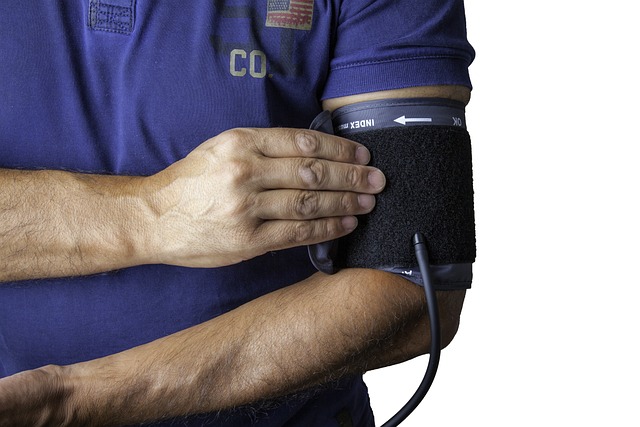Non-VA Healthcare Resources for LGBTQ+ Veterans

The Disabled Veterans of America (DAV) official site notes, “There are an estimated 1 million veterans who identify as lesbian, gay, bisexual, transgender and queer, and these veterans can face increased health risks and unique challenges in accessing quality health care.”
While the VA offers a range of healthcare services for eligible veterans, including LGBTQ+ individuals, knowing your non-VA healthcare resources is crucial, as these options may supplement VA care.
In 2025, several VA programs and services offered to LGBTQ+ veterans were revised or eliminated. These changes force many LGBTQ+ veterans to seek non-VA resources to replace or supplement care and services provided by the Department of Veterans Affairs. The resources listed below may be able to help.
LGBTQ+ Veterans’ Non-VA Healthcare Resources
These resources may include specialized services not always available through the VA or offer alternative options for those not eligible for VA benefits. What are the options available outside the Department of Veterans Affairs healthcare system?
If you need direct assistance with VA benefits and non-VA resources, VA.gov notes that an LGBTQ+ Veteran Care Coordinator is “at every facility to help Veterans get the care they need. VA policies require that health care is delivered in an affirming and inclusive environment and that VA employees respect a Veteran’s identity.”
Contact the LGBTQ+ VCC at your nearest VA facility.
Federally Qualified Health Centers (FQHCs)
FQHCs offer primary care services regardless of ability to pay, often serving underserved populations, including LGBTQ+ communities.
For example, Howard Brown Health in Chicago is an FQHC focused on LGBTQ+ health, offering primary care, mental health services, and specialized care for transgender individuals. Similarly, Callen-Lorde Community Health Center in New York City provides comprehensive healthcare services tailored to the LGBTQ+ community. These centers often have sliding scale fees, making healthcare more accessible.
According to the Health Resources and Services Administration (HRSA), FQHCs have the following features in common:
- Qualify for funding under Section 330 of the Public Health Service Act (PHS).
- Qualify for enhanced reimbursement from Medicare and Medicaid*, as well as other benefits
- Serve an underserved area or population
- Offer a sliding fee scale
- Provide comprehensive services
Read next: Disabled Veteran Benefits
State and Local Health Departments
State and local health departments offer public health services, including immunizations, health screenings, and disease prevention. Many have specific LGBTQ+ programs.
One example? The LA County Department of Public Health in Los Angeles has an Office of AIDS and HIV Policy, offering testing and prevention services. Treatment options may also be offered. The San Francisco Department of Public Health has a dedicated LGBTQ+ health section with resources on sexual health, mental health, and substance use.
These departments can be valuable for preventative care and addressing specific health concerns.
Planned Parenthood and Other Reproductive Health Organizations
Planned Parenthood provides reproductive healthcare, including family planning, contraception, STI testing and treatment, and abortion services. Planned Parenthood Federation of America has health centers nationwide, many of which offer specialized services for transgender and gender-diverse individuals, such as hormone therapy. Local affiliates, like Planned Parenthood Illinois, often have specific programs catering to the LGBTQ+ community.
Read next: Disabled Veteran Benefits
LGBTQ+ Community Centers and Health Organizations
Many cities have LGBTQ+ community centers and health organizations. The Center on Halsted in Chicago is one option. The Center offers primary care, mental health services, and social support groups.
Another example is found in southern California. The Los Angeles LGBT Center provides comprehensive healthcare, including gender-affirming care, mental health services, and legal assistance. These centers and other operations like them are vital sources of support and connection.
There are also national resources such as the Coalition for LGBTQ Health.
Private Healthcare Providers and Insurance
Private healthcare offers another option. Many insurance plans, such as those offered through employers, cover mental health services, gender-affirming care, and other specialized treatments. It’s essential to research providers knowledgeable about and affirming of LGBTQ+ health. Online directories like the one from the Gay & Lesbian Medical Association (GLMA) can be helpful.
For example, a veteran in need of hormone therapy could search for endocrinologists specializing in transgender care within their insurance network.
Mental Health Resources
Several organizations offer mental health resources for LGBTQ+ individuals. The Trevor Project is dedicated to providing resources for crisis intervention and suicide prevention for LGBTQ+ youth. The LGBT National Help Center offers peer support and information. The Jed Foundation focuses on mental health and suicide prevention for young adults, including resources specific to the LGBTQ+ community.
For example, a veteran struggling with PTSD related to their service could utilize the Trevor Project’s online chat or hotline for immediate support.
Legal and Advocacy Organizations
Organizations, including the ACLU, Lambda Legal, and the National Center for Transgender Equality advocate for LGBTQ+ rights and provide legal resources. For example, if a veteran faces discrimination in housing due to their sexual orientation, they should consider contacting Lambda Legal for assistance.
Resources for Families of LGBTQ+ Veterans
PFLAG offers support groups, educational materials, and online resources for families of LGBTQ+ individuals. For example, a parent of a transgender veteran could find support and information through their local PFLAG chapter.
Navigating Non-VA Healthcare Options
Navigating these options can be challenging. Researching, asking questions, checking insurance coverage, and considering cost are essential. For example, a veteran considering hormone therapy could compare costs and coverage between providers and insurance plans.
The Importance of Access to Comprehensive Healthcare
Access to comprehensive and affirming healthcare is vital for LGBTQ+ veterans and their families. While the VA offers services, exploring non-VA resources provides additional options and support.
Being informed, proactive, and connected to community resources is key to positive health outcomes. The combination of resources ensures comprehensive care tailored to their specific needs.
Read next: Disabled Veteran Benefits
About the author
Editor-in-Chief Joe Wallace is a 13-year veteran of the United States Air Force and a former reporter/editor for Air Force Television News and the Pentagon Channel. His freelance work includes contract work for Motorola, VALoans.com, and Credit Karma. He is co-founder of Dim Art House in Springfield, Illinois, and spends his non-writing time as an abstract painter, independent publisher, and occasional filmmaker.


